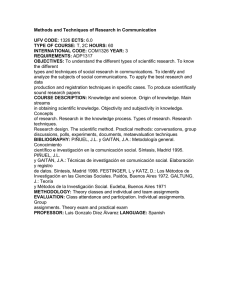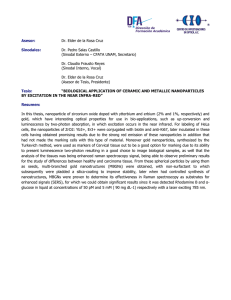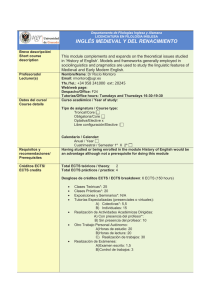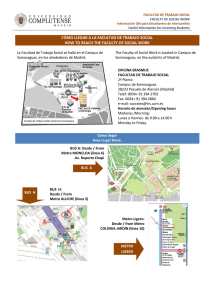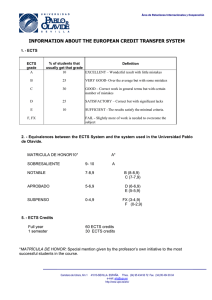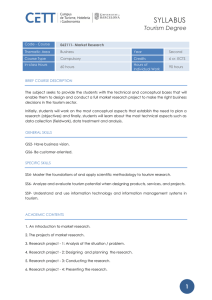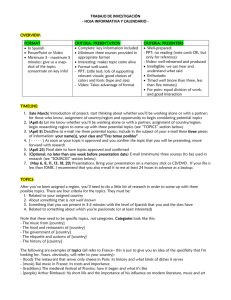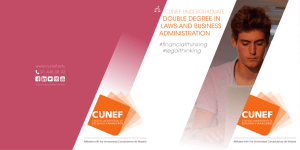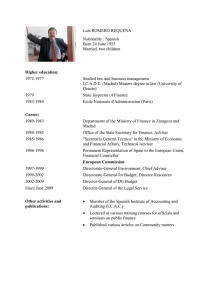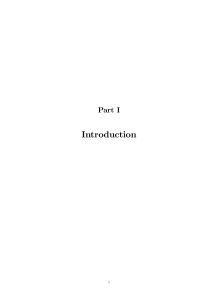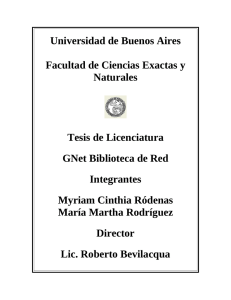Teaching Guide2015/2016
Anuncio
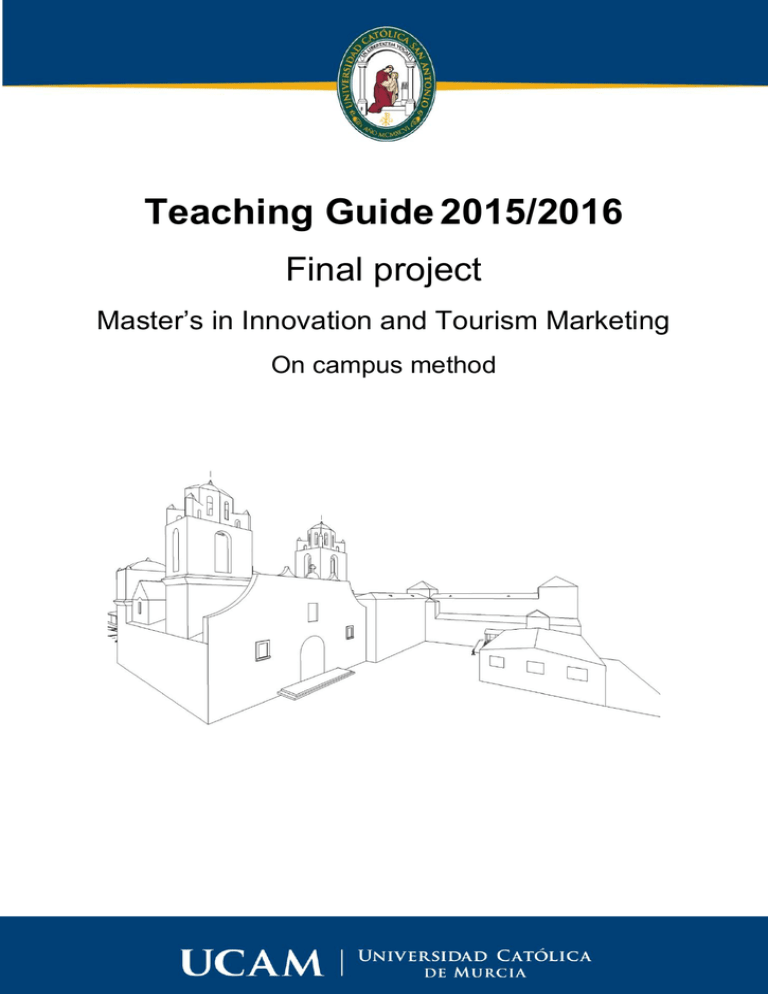
Teaching Guide 2015/2016 Final project Master’s in Innovation and Tourism Marketing On campus method Final project Index Final project .........................................................................................................................3 Brief subject description.....................................................................................................3 Previous requirements ........................................................................................................3 Objectives of the subject ....................................................................................................3 Competences and leaning results......................................................................................4 Syllabus ................................................................................................................................5 Relation to other disciplines of the study program ..........................................................5 Assessment system ............................................................................................................5 Bibliography and reference sources..................................................................................5 Webs related ........................................................................................................................6 Instructional materials ........................................................................................................6 [Subject] - Tlf: (+34) 902 102 101 Final project Final project Module: Final project Subject: Final project Number of ECTS: 6 ECTS Time unit: 2nd Semester Teacher of the subject: Margarita Capdepón Frías Email: mcapdepon@ucam.edu Schedule of attention: Tuesday and Wednesday, 11:00 to 13:30 h Module, subject or course Teacher/Coordinator: Jorge Lopez Carratalá Brief subject description The Final Project consists in the development of an academic work; the result should include and reflect all the skills learned by the student during the academic year of this master. At all times the student will be guided and a tutor will be assigned to this effect. Previous requirements Having passed all the subjects of the master Objectives of the subject 1. Apply knowledge related to the field of study 2. Know capture in an academic paper knowledge and conclusions the result of research in tourism innovationSaber plasmar en un trabajo académico los conocimientos y conclusiones fruto de una investigación en innovación turística. 3. Start to work in tourism research [Subject] - Tlf: (+34) 902 102 101 Final project Competences and leaning results General Competences G1: To know how to implement the acquired knowledge and have the resolution capacity of those problems related to innovation and marketing within the touristic field G2: To be able to draw up reflections about the ethical and social possibilities that take part in within the touristic field by integrating knowledge and information. G5: To be able to look for and organize information from different sources and interpret the results obtained in order to elaborate reports. Specific Competences CEM22: To self-train in the search of information on innovation, and marketing specialized sources. CEM23: To integrate the acquired knowledge and issue judgments from an incomplete or limited information, by using the innovation and marketing touristic specialized terminology. Methodology Hours of face to face work Hours of non face to face work 5% 7,5 seminars Theoretical exposition TOTAL … 95% % ECTS Hours ECTS % ECTS Hours ECTS 95% 7,12 Work in final project 95% 135,38 0,38 Task preparation and exposition 5% 5% 7,12 100% 7,5 TOTAL … 100% 142,5 142,5 [Subject] - Tlf: (+34) 902 102 101 Final project Syllabus Students can consult the documents " Guidelines for the development of final project " and " Nature of Final project ". These documents are available on the virtual campus of each student at the beginning of the course. Relation to other disciplines of the study program Module I, II y III Assessment system February/June Call: - written work: 70% of total grade - Oral presentation: 30% of total grade September Call: - written work: 70% of total grade - Oral presentation: 30% of total grade Bibliography and reference sources Basic bibliography Azar, G., Silar, M. (2006). Metodología de la investigación y técnicas para la elaboración de tesis. Madrid: Hispania Libros. Ballard, B.(1995). Cómo se hace un trabajo académico. Zaragoza: Prensas Universitarias de Zaragoza. Clanchy, J. (2000). Cómo se hace un trabajo académico: guía práctica para estudiantes universitarios. Zaragoza: Prensas Universitarias de Zaragoza Eco, U. (2010). Como se hace una tesis. Madrid: Editorial Gedisa. Medina Rivilla, A. y Castillo Arredondo, S. (2003). Metodología para la realización de proyectos de investigación y tesis doctorales. Madrid: Universitas. Pantoja Vallejo, A. (2009). Manual básico para la realización de tesinas, tesis y trabajos de investigación. Madrid: Eos. [Subject] - Tlf: (+34) 902 102 101 Final project Complementary bibliography Biagi Marta, C. (2010). Investigación Científica. Guía práctica para desarrollar proyectos y tesis. Paraná, Brasil: Jurua. Colas Bravo, M., Buendía Eisman, L. y Hernández Pina, F. (2009). Competencias científicas para la realización de una tesis doctoral. A Coruña: Davinci. Phillips Estelle, M. y Pugh, D. (2008). La tesis doctoral. Barcelona: Bresca-Profit. Rivera Camino, J. y Gómez Mejía, L. (2011). Cómo escribir y publicar una tesis doctoral. Madrid: Esic. Soriano, R. (2008). Cómo se escribe una tesis doctoral. Madrid: Berenice. Webs related http://www.upf.edu/bibtic/es/recursos/treaca/ http://www.bbtk.ull.es/view/institucional/bbtk/Como_elaborar_un_trabajo_1/es http://www.uv.es/bibsoc/GM/dosieres/como.html http://www.buc.unican.es/Servicios/formacion/CITAR/PAG0.htm Instructional materials Using the Virtual Campus . Using internet -connected device for video conferencing. Download Skype. [Subject] - Tlf: (+34) 902 102 101
